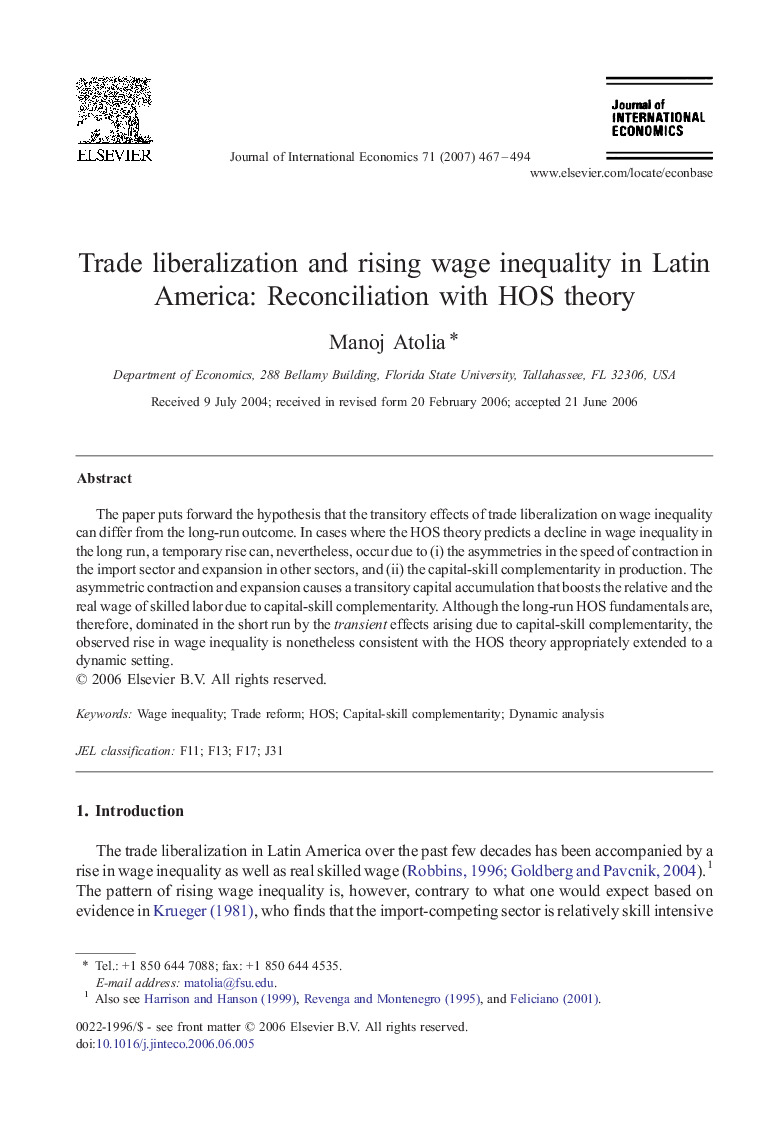| Article ID | Journal | Published Year | Pages | File Type |
|---|---|---|---|---|
| 962902 | Journal of International Economics | 2007 | 28 Pages |
Abstract
The paper puts forward the hypothesis that the transitory effects of trade liberalization on wage inequality can differ from the long-run outcome. In cases where the HOS theory predicts a decline in wage inequality in the long run, a temporary rise can, nevertheless, occur due to (i) the asymmetries in the speed of contraction in the import sector and expansion in other sectors, and (ii) the capital-skill complementarity in production. The asymmetric contraction and expansion causes a transitory capital accumulation that boosts the relative and the real wage of skilled labor due to capital-skill complementarity. Although the long-run HOS fundamentals are, therefore, dominated in the short run by the transient effects arising due to capital-skill complementarity, the observed rise in wage inequality is nonetheless consistent with the HOS theory appropriately extended to a dynamic setting.
Related Topics
Social Sciences and Humanities
Economics, Econometrics and Finance
Economics and Econometrics
Authors
Manoj Atolia,
